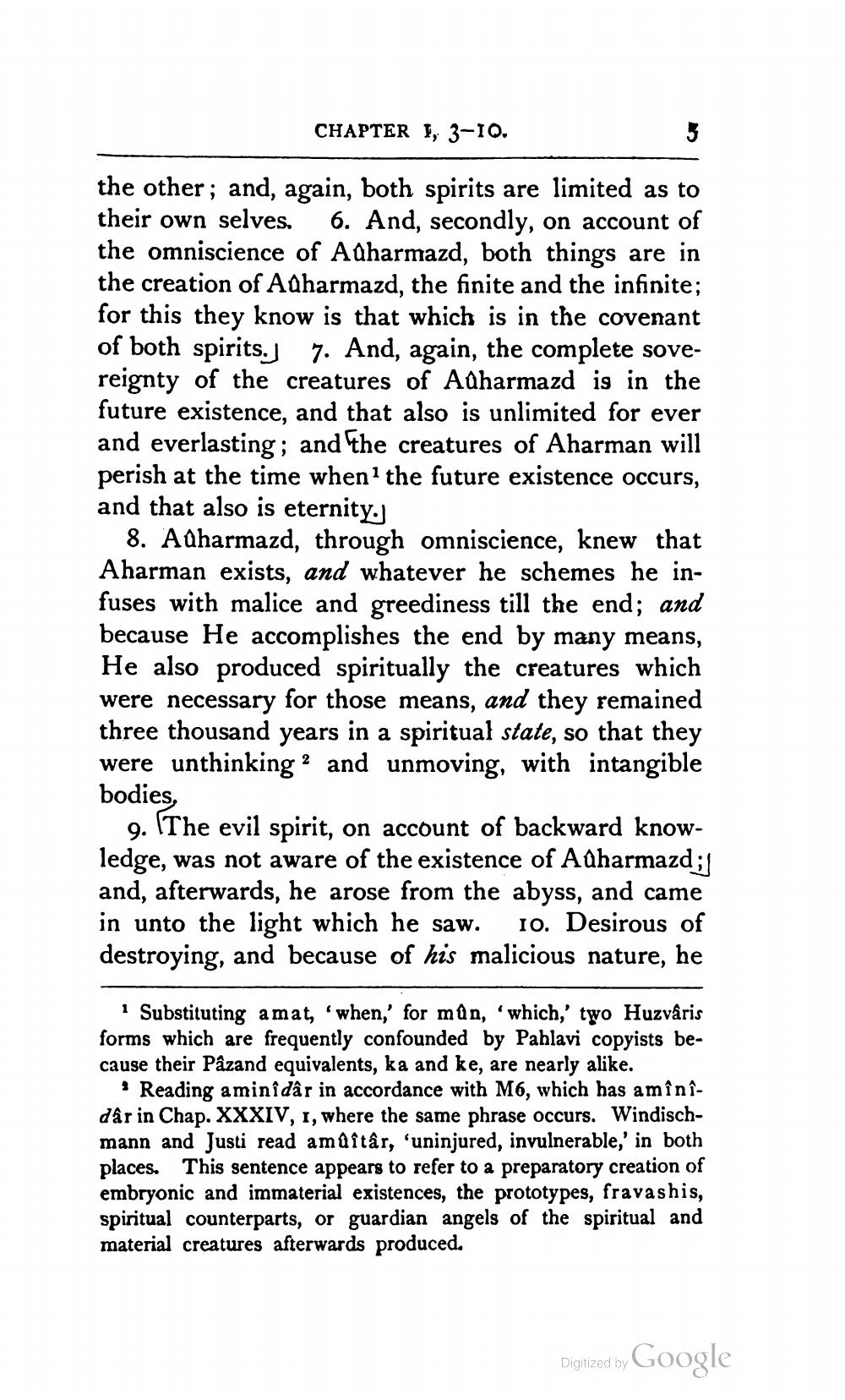________________
CHAPTER 1, 3-10.
the other; and, again, both spirits are limited as to their own selves. 6. And, secondly, on account of the omniscience of Adharmazd, both things are in the creation of Adharmazd, the finite and the infinite; for this they know is that which is in the covenant of both spirits.] 7. And, again, the complete sovereignty of the creatures of Adharmazd is in the future existence, and that also is unlimited for ever and everlasting; and the creatures of Aharman will perish at the time when the future existence occurs, and that also is eternity
8. Adharmazd, through omniscience, knew that Aharman exists, and whatever he schemes he infuses with malice and greediness till the end; and because He accomplishes the end by many means, He also produced spiritually the creatures which were necessary for those means, and they remained three thousand years in a spiritual state, so that they were unthinking 2 and unmoving, with intangible bodies,
9. \The evil spirit, on account of backward knowledge, was not aware of the existence of Adharmazd; and, afterwards, he arose from the abyss, and came in unto the light which he saw. 10. Desirous of destroying, and because of his malicious nature, he
Substituting amat, 'when,' for mûn, 'which,' tyo Huzvâris forms which are frequently confounded by Pahlavi copyists because their Pâzand equivalents, ka and ke, are nearly alike.
? Reading aminîdar in accordance with M6, which has am înîdar in Chap. XXXIV, 1, where the same phrase occurs. Windischmann and Justi read amdîtâr, ‘uninjured, invulnerable,' in both places. This sentence appears to refer to a preparatory creation of embryonic and immaterial existences, the prototypes, fravashis, spiritual counterparts, or guardian angels of the spiritual and material creatures afterwards produced.
Digitized by
Digitized by Google




